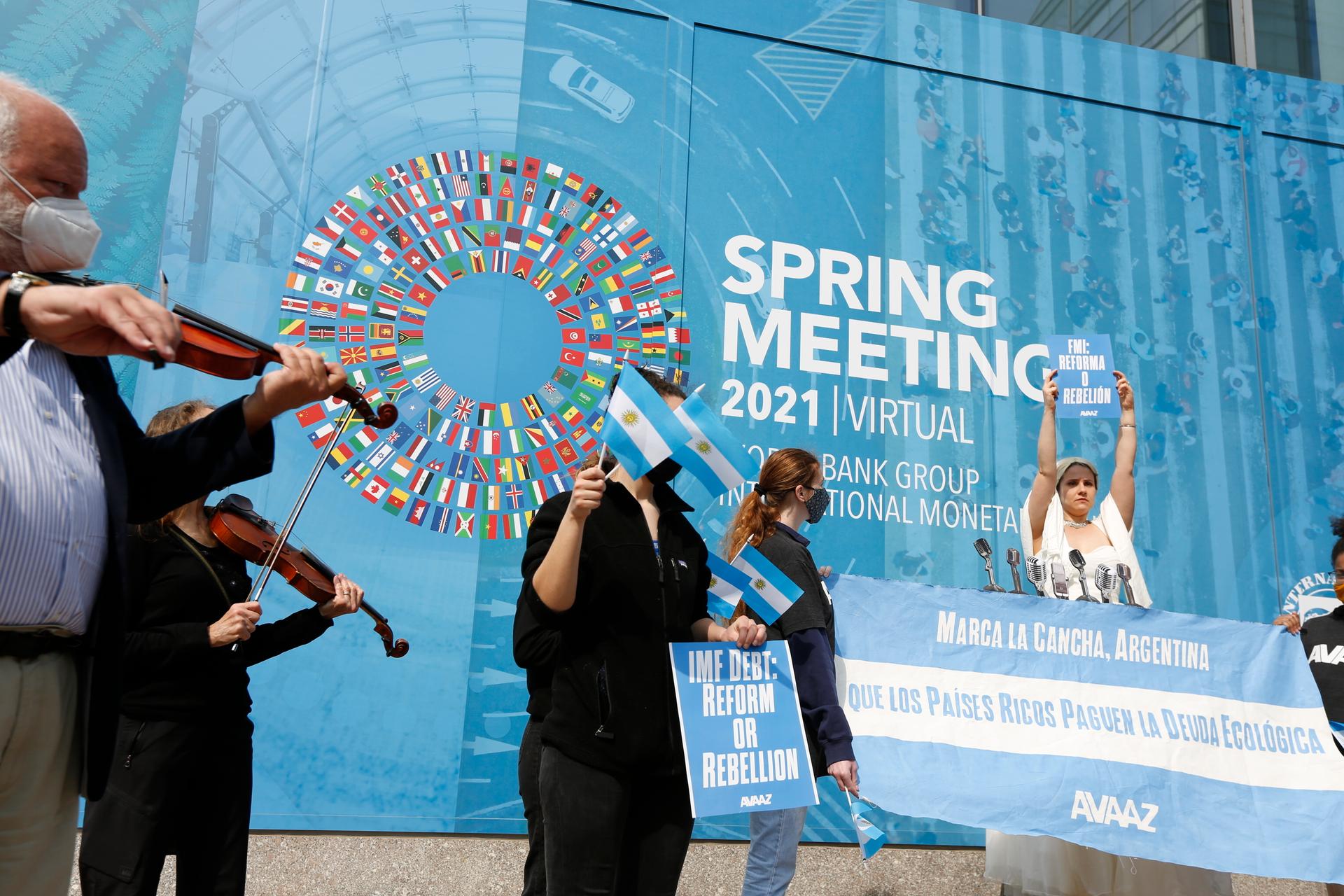COVID-19 recovery in wealthy countries far outpaces the developing world, IMF warns
The global recovery from COVID-19 is happening faster than expected.
That was the good news this past week as members of the International Monetary Fund, or IMF, met virtually for its 2021 spring session.
Wealthy countries that had the money to pass big stimulus packages are already seeing a payoff in economic growth. But there was also bad news: The recovery has been uneven, leaving developing countries behind.
In the last year, 86 countries have taken out $110 billion in emergency loans from the IMF, and many are struggling with the debt.
“Some countries are actually already paying somewhere between 30% and 70% of all government revenue to service external debts, to pay back bondholders in New York, to pay back development banks and so forth.”
“Some countries are actually already paying somewhere between 30% and 70% of all government revenue to service external debts, to pay back bondholders in New York, to pay back development banks and so forth,” said Kevin Gallagher, director of Boston University’s Global Development Policy Center.
The IMF thinks these two halves of the world moving at different speeds need to come together. For a while, it has wanted to use one of its most powerful tools to give poorer countries desperately needed cash: something called “special drawing rights.” They’re kind of like a line of credit for IMF member countries that, most of the time, don’t need to be paid back. The Trump administration opposed expanding special drawing rights, but recently, the US and other countries agreed to increase them by $650 billion.
“A number of members in the discussion called it historic, and it is,” said IMF managing director Kristalina Georgieva in a press conference after the discussion.
In an interview, Ceyla Pazarbaşıoğlu, IMF director of strategy, policy and review, said it’s the largest increase in special drawing rights in the fund’s history.
“It shows that the membership came together for the needs of all,” she said.
Related: UN Human Rights Council starts work to address a ‘pandemic of human rights abuses’
Pazarbaşıoğlu said the move will help minimize the economic divergence between countries. The IMF is also recommending countries raise taxes on the wealthy or close tax loopholes in order to bring the rich and poor more into alignment.
“We have always talked about progressive taxation, and this is more important now. Why? Because we are talking about inequality, which is worsening, and we are also talking about divergence, and potential long-term impact from this crisis.”
“We have always talked about progressive taxation, and this is more important now. Why? Because we are talking about inequality, which is worsening, and we are also talking about divergence, and potential long-term impact from this crisis,” she said.
Meanwhile, watchdog groups like Human Rights Watch are worried that some of the money that’s meant to help developing countries recover from COVID-19 has been lost to corruption. HRW did a study that showed that some countries failed to follow anti-corruption transparency requirements built into their COVID-19 emergency loans from IMF.
“It’s a complicated balance between getting governments money quickly and making sure that that money is actually going to benefit the people who need it,” HRW senior researcher Sarah Saadoun said. “The IMF’s approach — given all of the limitations of emergency lending — was fine. The problem has just been that they’re checking the box of these measures being implemented without the public actually meaningfully being able to track the spending.”
Related: COVID-19 racial stats: A ‘double-edged sword’ for some marginalized groups in Canada
The IMF’s Pazarbaşıoğlu said it will soon launch an online matrix showing the progress each country receiving a loan has made toward its transparency commitments, so civil society groups can hold governments accountable.
Gallagher, at Boston University, said there’s a chance that wealthy countries’ recovery success could make things worse for less wealthy countries. Take the US: The IMF expects its economy to grow 6.4% this year — more than it has in decades. Gallagher said there’s a possibility that will mean inflation, which in turn, may mean the US raises interest rates. And if interest rates go up, he said, that essentially increases developing countries’ debt.
“So, they have to come up with that many more rupees, or that many more rial, or that many more pesos, or that many more rands, to be able to pay those dollar debts,” Gallagher said.
